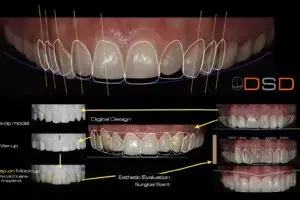Dental anxiety is a common issue that can prevent individuals from seeking necessary dental care, leading to compromised oral health and increased risk of dental emergencies. Cognitive Behavioral Therapy (CBT) has emerged as an effective approach to managing and overcoming dental anxiety. This article explores the benefits of CBT in addressing dental fears and enhancing the overall dental experience.
What is Cognitive Behavioral Therapy (CBT)?
Cognitive Behavioral Therapy is a form of psychotherapy that focuses on identifying and changing negative thought patterns and behaviors. CBT is based on the concept that our thoughts, feelings, and behaviors are interconnected, and by altering negative thoughts, we can improve emotional responses and actions.
How CBT Helps with Dental Anxiety
CBT addresses dental anxiety by targeting the underlying cognitive distortions and behavioral responses that contribute to fear. Here’s how CBT can be beneficial:
- Identifying Negative Thoughts: CBT helps individuals recognise irrational fears and negative thoughts related to dental visits, such as fear of pain, embarrassment, or loss of control.
- Challenging Cognitive Distortions: Through CBT, patients learn to question and reframe their negative thoughts, replacing them with more realistic and positive perspectives.
- Developing Coping Strategies: CBT equips individuals with practical techniques to manage anxiety, such as deep breathing, relaxation exercises, and positive visualisation.
- Gradual Exposure: CBT often involves gradual exposure to the feared situation—in this case, dental visits—to desensitise individuals to their anxiety triggers.
- Enhancing Self-Efficacy: By successfully managing anxiety through CBT, individuals gain confidence in their ability to handle dental procedures, reducing overall fear.

Benefits of CBT for Dental Anxiety
- Long-Lasting Results: Unlike temporary fixes, CBT provides individuals with tools and strategies that can be applied to various anxiety-inducing situations beyond dental visits.
- Personalised Approach: CBT is tailored to each individual’s specific fears and needs, ensuring a customised treatment plan that addresses unique anxiety triggers.
- Improved Dental Attendance: By effectively managing anxiety, individuals are more likely to attend regular dental appointments, leading to better oral health outcomes.
- Enhanced Overall Well-Being: Reducing dental anxiety through CBT can also alleviate related stress and improve overall mental health.
- Non-Invasive and Drug-Free: CBT is a therapeutic approach that doesn’t rely on medication, making it a suitable option for those who prefer non-pharmacological treatments.
Integrating CBT with Dental Care
For optimal results, integrating CBT with dental care can create a comprehensive approach to managing dental anxiety:
- Collaboration Between Therapists and Dentists: Therapists can work alongside dental professionals to develop a coordinated treatment plan that addresses both psychological and dental needs.
- Pre-Appointment CBT Sessions: Engaging in CBT sessions before dental appointments can prepare individuals with effective coping mechanisms to manage anxiety during the visit.
- Post-Procedure Support: CBT can provide support after dental procedures, helping individuals process their experiences and reinforce positive associations with dental care.
Success Stories and Evidence
Numerous studies have demonstrated the effectiveness of CBT in reducing dental anxiety. Patients undergoing CBT have reported significant improvements in their ability to manage fear, leading to increased dental attendance and better oral health. Success stories often highlight how CBT has transformed individuals’ perspectives on dental care, enabling them to approach appointments with confidence and calmness.
Accessing CBT for Dental Anxiety
Accessing CBT for dental anxiety involves the following steps:
- Consult a Mental Health Professional: Seek out a licensed therapist or psychologist who specialises in anxiety disorders and has experience with CBT.
- Discuss Your Fears: Share your specific fears and experiences related to dental visits to help the therapist tailor the CBT approach to your needs.
- Commit to Regular Sessions: Consistent participation in CBT sessions is essential for achieving lasting results.
- Practice CBT Techniques: Actively engage in the coping strategies and exercises provided during therapy to reinforce positive changes.
Conclusion
Cognitive Behavioral Therapy offers a powerful and effective solution for managing dental anxiety. By addressing the cognitive and behavioral aspects of fear, CBT empowers individuals to overcome their dental fears and engage in regular dental care with confidence. Integrating CBT with dental treatments can lead to improved oral health, enhanced well-being, and a more positive relationship with dental care. If dental anxiety has been holding you back from maintaining your oral health, consider exploring CBT as a viable and transformative option to reclaim a healthy, confident smile.


